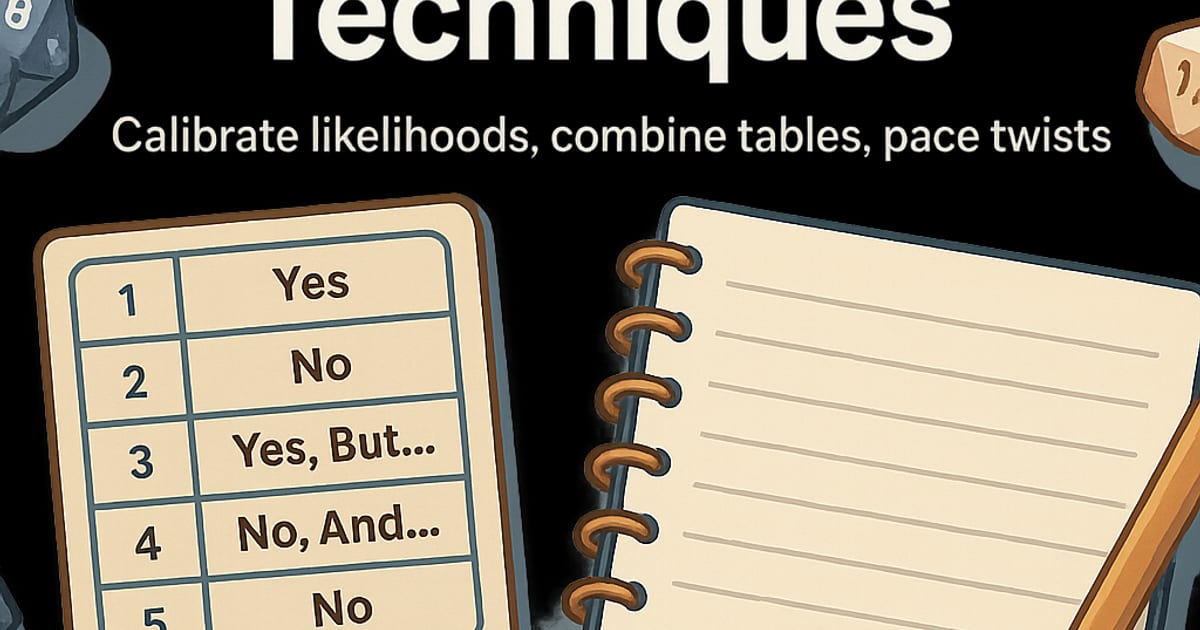Advanced Oracle Techniques
~7 min read

Recap: Oracles in a sentence#
Oracles answer questions to resolve uncertainty and spark ideas so you can keep momentum. Keep questions specific, act on the answer, and write down any new truths.
Tuning likelihoods (and when not to)#
Weighted yes/no tables are great for nudging outcomes toward what feels most plausible. A simple approach:
- Even odds: 50/50 when the world is truly uncertain.
- Lean likely/unlikely: 65/35 when the fiction suggests a tilt but not a lock.
- Very likely/unlikely: 80/20 when only a surprise would reverse expectations.
Use a tilt, then commit. If you over‑tune every question, you’ll slow play and “pre‑decide” results. Reserve strong tilts for moments that matter; otherwise roll and move on.
Combining tables for richer answers#
Single answers are fast; combos add flavor without extra prep:
- Subject + Action: Who or what is involved, and what are they doing?
- Mood + Detail: How does it feel, and what stands out?
- Twist + Constraint: What changes, and what limitation now exists?
Roll 1–2 extra prompts when a scene feels flat or needs direction. Keep combos terse—one noun, one verb, one texture is often enough to unlock a clear next move.
Pacing twists without derailing#
Twists are spice, not the meal. A simple cadence:
- Default: Add a small complication every 3–5 scene checks.
- Escalate: When progress is too smooth, introduce a cost, timer, or new foe.
- Brake: When chaos feels high, let a scene resolve cleanly to create contrast.
Write twists as facts. “The vault is already open” is better than “Something unexpected happens.” Clear facts make your next choice obvious.
Turn answers into concrete actions#
Every answer should change the board. Use this quick filter:
- State: What is now true?
- Stake: Why does it matter?
- Step: What will you do next?
Write a one‑line truth after each scene. These truths are your memory and guardrails; they also reduce re‑asking the same question.
Examples#
Example 1 — Stealth entry: “Is the back door unlocked?” Unlikely → Yes, but… It’s unlocked, but the hinges squeal (noise tracker +1). Now the next step is clear: enter quickly or find oil.
Example 2 — Negotiation: “Will the merchant loan us gear?” Even → No, and… They spread the word you’re broke (reputation −1). New state: guards scrutinize you at the gate.
Example 3 — Lost in ruins: “Do we spot a landmark?” Likely → No. Roll Mood + Detail: oppressive + moss‑choked mural. Action: mark a Fatigue box; plan a safe camp.
Example 4 — Boss twist: “Does the boss fight fair?” Unlikely → Yes, and… they toss their sword aside to wrestle (new move set). That truth makes your tactic choice interesting.